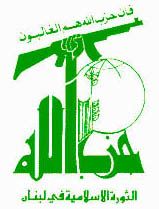 |
| Vol. 6 No. 2/3 | Table of Contents MEIB Main Page | February-March 2004 |
 |
On March 10, Israel's Shin Bet security service revealed that it had uncovered a major Hezbollah cell in the Khan Yunis refugee camp in Gaza. The cell was founded in 2000 by Shadi Abu al-Hasin, who decided to join the group after watching broadcasts of its television station, Al-Manar. Hasin, who was arrested three months ago, initially contacted Hezbollah through a Lebanese uncle, Hassan Doukmak, who is active in the organization. Hezbollah sent several thousands dollars to the cell over the next three years. Hasin, who gained knowledge of chemistry while studying pharmacy at a technical college in Khan Yunis, used the money to buy bomb precursors and the cell began manufacturing crude mortars and Qassam rockets. The cell launched several mortar, rocket, and machine gun attacks on Israeli outposts in Gaza.
Two members of the cell, Bassam Abu Nimer and Ismail Grabli, met with a Hezbollah official in Egypt last year and were given travel expenses for future trips to meet Hezbollah members in Turkey and train at the group's camps in Lebanon, but they were arrested after they arrived back in Israel. In July 2003, Hezbollah sent a special envoy, Wassim Masrouji, to Gaza to relay instructions to the cell. Masrouji was arrested around the same time as Hasin when he tried to leave Gaza via the Rafah border crossing in November 2003.[1]
In early February, two Israeli Arab brothers, Ghassan and Sirhan Atmallah, were indicted on charges of setting up a terrorist cell on behalf of Hezbollah to carry out suicide bombings. According to Israeli security officials, Ghassan was recruited during a Fall 2002 visit to Jordan by Ibrahim Ajwa, a Palestinian official of the Fatah Abu Moussa faction who coordinates Hezbollah's efforts to acquire Palestinian and Israeli Arab operatives. Ghassan and his younger brother were put in contact with Hezbollah agents in Turkey and set up a business to import goods from Turkey as a cover. Sirhan traveled to Turkey at least twice in 2003 and met with a Hezbollah agent known as Abu Waal to discuss the list of Israeli Arabs he planned to recruit and make arrangements for Hezbollah to supply the financing and material needed to carry out suicide bombings (during his visit, he mailed a shipment of diapers back home in order to test Israeli security procedures). In December 2003, he traveled to Lebanon via Turkey and underwent an intensive 10-day course of training in the art of bomb-making and surveillance detection. Sirhan's visit to Lebanon caught the attention of Israeli intelligence, however, and he and his brother were both arrested shortly after his return home. According to the indictment, the brothers were scheduled to receive a ready-made bomb for their first attack at the time of their arrest and had recruited an unspecified number of other Israeli Arabs who remain at large.[2]
On March 4, Israeli officials announced the arrests of another pair of Israeli Arab brothers, Muhammad and Majid Hussam Kaananeh, who were also recruited by Ajwa in Jordan. They were charged with transporting computer disks containing Hezbollah instructions on the preparation of explosives and rockets from Jordan to an al-Aksa Martyrs Brigade cell in the West Bank town of Jenin. The two brothers also received $10,000-$12,000 from Ajwa to set up a terrorist cell.[3]
Although Hezbollah has recruited Israeli Arabs in the past, the cases of the Atmallah and Kaananeh brothers are unprecedented in several respects. Hezbollah's previous efforts have mainly involved the exchange of drugs or money for intelligence information. Although these operatives greatly improved Hezbollah's eyes and ears in Israel, they did not constitute a direct terrorist threat. Moreover, such recruits were typically from the dregs of Israeli Arab society and tended to be motivated by profit, not passion - making them very unreliable operatives.
The Atmallah and Kaananeh brothers, in contrast, appear to have been motivated primarily by their ideological commitments. Ghassan Atmallah is a member of the Central Committee of the Israeli Arab Balad party. Although he was known as a troublemaker within the party (he had been placed under temporary administrative detention in November 2000 for organizing violent riots in Kafr Kana), the involvement of a prominent member of a mainstream Arab political party in planning suicide bombings is striking. Muhammad Kaananeh is the secretary-general of Sons of the Village, a nationalist movement of which Balad is an offshoot; his brother, a psychologist, is a senior member of the group.
Meanwhile, new information regarding Hezbollah's terrorist financing in the West Bank has come to light in recent weeks. Palestinian Authority (PA) officials said that they have evidence that Hezbollah funded the January 29 and February 22 suicide bombings, which left 11 and 8 Israelis dead.[4] On February 25, Israeli troops raided three Palestinian banks and seized about $9 million, some of which was reportedly held by the Al-Ansar Charity Association, an institution that Israel says is used by Hezbollah to transfer funds to families of Palestinian suicide bombers and prisoners arrested for terrorist activities to terror activity.
Notes
[1] Ha'aretz, 11 March 2004.
[2] "Balad men held for forming Hezbollah cell," The Jerusalem Post, 9 February 2004; Ha'aretz, 8 February and 9 February 2004.
[3] "Israeli Arabs nabbed for Hizbullah mediation," The Jerusalem Post, 4 March 2004.
[4] "Palestinian militants get bonuses for killing Israelis, Israeli lawmaker says," The Associated Press, 24 February 2004.